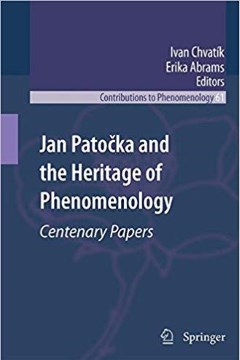This document is unfortunately not available for download at the moment.

Erika Abrams, Ivan Chvatík (2011) Jan Patočka and the heritage of phenomenology: centenary papers, Dordrecht, Springer.
"Idealities of nature"
Jan Patočka on reflection and the three movements of human life
Steven Crowell
pp. 7-22
Not implemented yet !


